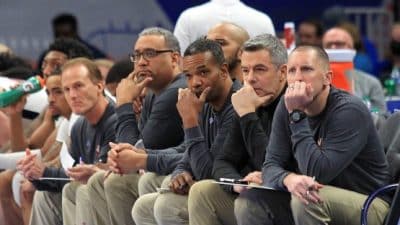
Amid high inflation and fears of a recession, new unemployment claims dropped by 2.6 percent on August 29.
WalletHub’s States Where Unemployment Claims Are Decreasing the Most reveals that 23 states and D.C. had lower unemployment claims last week compared to the previous week. The states are Vermont, New Hampshire, Michigan, Connecticut, Mississippi, New York, South Carolina, Alabama, West Virginia, Arkansas, Louisiana, Delaware, Maryland, Rhode Island, Oregon, Montana, Missouri, Maine, North Carolina, Florida, New Jersey, Wyoming and Tennessee.
WalletHub Analyst Jill Gonzalez said that unemployment is no longer an issue since the United States recovered from the COVID-19 pandemic, but responded to why more jobs remain open than the number of Americans looking for work.
“The next step might be looking to open up immigration to fill the surplus of jobs nationwide. Doing so would not only help businesses meet their needs, but would also drive additional economic growth,” Gonzalez said.
Unemployment claims increased last week compared to the same week in 2021 in South Carolina, Kentucky, Oklahoma, Connecticut and Arizona.
Unemployment claims were lower last week that in the same week in 2019 in all states except Oklahoma, Indiana, Connecticut, Colorado, Ohio, Utah, Virginia, Kentucky, Hawaii, Alaska, Minnesota, Texas, Rhode Island, California, Georgia, Alabama, Michigan and Idaho.
Unemployment decreased the most in New Hampshire last week compared to the previous week, followed by Maryland, Delaware, Louisiana and Mississippi. Claims increased the most in Massachusetts, Oklahoma, Kentucky, Alaska and Indiana.
Gonzalez also said the recent federal interest rate hike will have an impact on unemployment.
“Essentially, higher interest rates might lower consumer spending and business investments, which could lead to a reduction in hiring and an increase in unemployment,” Gonzalez said. “Since the cost of borrowing will also now be higher, it could also have a direct impact on employees’ personal finances. Combined, it’s not a very good outlook in terms of unemployment numbers in the short term.”
Gonzalez said that “all eyes will once again fall on inflation” at the federal September meeting, and inflation will also affect unemployment.
“The jobs numbers are predicted to remain strong. But the ongoing labor shortage could keep contributing to inflation, which will most likely lead to more interest rate hikes. The Fed uses these hikes to destress the economy and hopefully curb inflation. And sooner or later, the Fed’s actions will increase unemployment numbers,” Gonzalez said.
Inflation and a recession would be a double negative for unemployment in the U.S.
“A potential recession would negatively affect unemployment significantly. Losing a job is never good, but when you combine it with such high inflation it can really become disastrous. Even Americans with jobs right now are struggling to afford essentials like food and gas. If those numbers to climb while more people become unemployed, we might see an economy in deep recession,” Gonzalez said.
States that lean Republican, also known as red states, fared better in last week’s data than Democrat, or blue states.
“With an average rank of 25 among the states with the biggest decreases in unemployment claims, red states fared better last week than blue states, which rank 27 on average. The lower the number of the ranking, the bigger the decrease in the state’s new unemployment claims was,” Gonzalez said.










